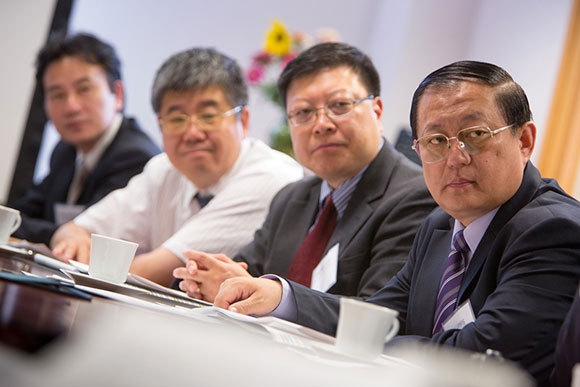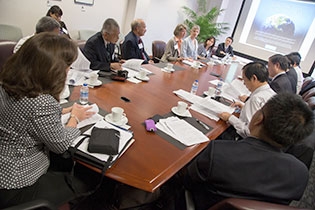Sharing Interests in Public Health Education

China faces a daunting array of new health challenges: non-communicable diseases, environmental hazards, and mental health. Managing these new health threats requires not only traditional individual-level medical care, but also robust population-based public health delivery in the form of disease prevention and health promotion. Effective public health delivery, in turn, demands well-trained public health leaders and professionals, but some leading Chinese public health educators who participated in a CMB-supported study tour observed that public health education in their country is in a state of crisis.
Educators at Chinese Schools of Public Health (SPH) recognize the urgency of public health reform and are working together to strengthen public health training programs, especially at the master of public health (MPH) and doctor of public health (DrPH) levels. A study tour of leading American institutions gave deans and professors of seven Chinese SPH opportunities to observe strengths and weaknesses of U.S. MPH and DrPH programs and consider how these American experiences can inform Chinese public health education reform. The study tour, held July 27 to August 1, is one component of public health education reform initiatives led by Peking Union Medical College and Xi’an Jiaotong University and supported by China Medical Board (CMB).
The Chinese delegates visited top-ranked American SPH at Columbia University, Harvard University, and the University of North Carolina (UNC) SPH. They noted the strengths of U.S. program curriculum design, teaching methods, and leadership culture; they also observed how these schools strive to continuously reform their training programs, adjust to public health needs, and maintain a culture of innovation.
The 10 Chinese SPH deans and professors represented Central South University, Fudan University, Peking Union Medical College, Peking University, Shanghai Jiaotong University, Xi’an Jiaotong University, and Zhejiang University. For a more complete report, please see the “Public Health Education Reform Study Tour Report” (公共卫生教育改革学习之旅总结报告).

